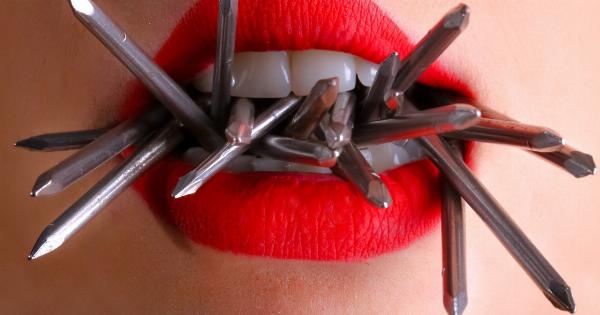Premature wrinkles are a common skin problem that can occur due to a variety of factors such as aging, sun damage, stress, environmental pollution, and lifestyle behaviors such as smoking and poor diet.
However, another factor that is not widely known is the role of metal exposure in causing premature wrinkles. Certain metals can accelerate the aging process and damage the skin cells, leading to wrinkles, fine lines, and other signs of skin aging.
In this article, we will explore which metal causes premature wrinkles and how to reduce the risk of metal exposure in daily life.
What is Metal Toxicity?
Metal toxicity refers to the harmful effects of excess metal exposure in the body.
Metals are naturally occurring elements that are essential for various physiological functions such as energy production, bone formation, hormone synthesis, and enzyme activation. However, when metals accumulate in the body beyond the normal range, they can disrupt the cellular processes and cause oxidative stress, inflammation, and tissue damage.
Some of the common metals that can cause toxicity include lead, mercury, cadmium, arsenic, aluminum, and nickel.
How Do Metals Cause Premature Wrinkles?
Metals can cause premature wrinkles by inducing oxidative stress and inflammation in the skin cells.
Oxidative stress occurs when there is an imbalance between the free radicals and the antioxidants in the body, leading to the damage of cellular components such as DNA, proteins, and lipids. Free radicals are unstable molecules that can steal electrons from other molecules, thereby disrupting their structure and function.
Metals can generate free radicals by acting as catalysts in the redox reactions, leading to the production of reactive oxygen species (ROS) such as hydrogen peroxide and superoxide.
In addition to causing oxidative stress, metals can also trigger the production of pro-inflammatory cytokines and chemokines in the skin cells.
Inflammation is a natural response of the immune system to injury or infection, but chronic inflammation can exacerbate the aging process by promoting the degradation of collagen and elastin fibers in the skin. Collagen is a protein that provides structural support and elasticity to the skin, while elastin is a protein that allows the skin to stretch and bounce back to its original shape.
When collagen and elastin fibers break down, the skin becomes saggy, thin, and prone to wrinkles and fine lines.
Which Metal Causes Premature Wrinkles?
The metal that is most commonly associated with skin aging and wrinkles is nickel. Nickel is a ubiquitous metal that is found in many household items such as jewelry, coins, zippers, and kitchen utensils.
It is also present in soil, water, and air due to industrial pollution. Nickel exposure can occur through inhalation, ingestion, or skin contact. In the skin, nickel can bind to proteins such as lactoferrin and histidine, forming antigenic complexes that can elicit an immune response.
This immune reaction can lead to the activation of neutrophils and macrophages, which release ROS and pro-inflammatory molecules such as interleukin-1 and tumor necrosis factor-alpha.
Studies have shown that nickel exposure can induce oxidative stress, DNA damage, and apoptosis in the skin cells, leading to premature aging and skin cancer.
In a study published in the Journal of Dermatology, researchers found that women with nickel allergy had more wrinkles and fine lines than those without nickel allergy, even after controlling for age and sun exposure. Another study published in the Journal of Investigative Dermatology showed that nickel exposure can deplete the antioxidant glutathione in the skin, leading to increased oxidative stress and skin aging.
How to Reduce the Risk of Nickel Exposure?
To reduce the risk of nickel exposure and premature wrinkles, it is important to identify the sources of nickel in daily life and avoid or minimize contact with them. Some of the common sources of nickel include:.
- Jewelry
- Clothing accessories such as buttons, zippers, and clasps
- Kitchen utensils such as pots, pans, and cutlery
- Cosmetics and personal care products such as eyeshadows, lipsticks, and shampoos
- Electronic devices such as smartphones, laptops, and watches
- Coins and keys
To reduce the risk of nickel exposure, you can take the following steps:.
- Use nickel-free jewelry and accessories
- Choose stainless steel or titanium kitchen utensils
- Read the labels of cosmetics and personal care products for nickel content
- Use a protective cover or case for electronic devices
- Wash hands after handling coins and keys
In addition to avoiding nickel exposure, you can also adopt a skin-friendly lifestyle and diet to promote skin health and reduce oxidative stress. Some of the tips include:.
- Wear sunscreen with at least SPF 30 and broad-spectrum protection
- Avoid smoking and secondhand smoke
- Eat a diet rich in antioxidants such as fruits, vegetables, nuts, and seeds
- Drink plenty of water to hydrate the skin
- Get enough sleep and manage stress levels
Conclusion
Nickel exposure is a common and preventable cause of premature wrinkles and skin aging.
By identifying the sources of nickel in daily life and taking steps to avoid or minimize contact with them, you can reduce the risk of skin damage and promote skin health. In addition, adopting a skin-friendly lifestyle and diet can also enhance the natural defenses of the skin and reduce oxidative stress. With proper care and attention, you can maintain a youthful and healthy appearance for years to come.




























